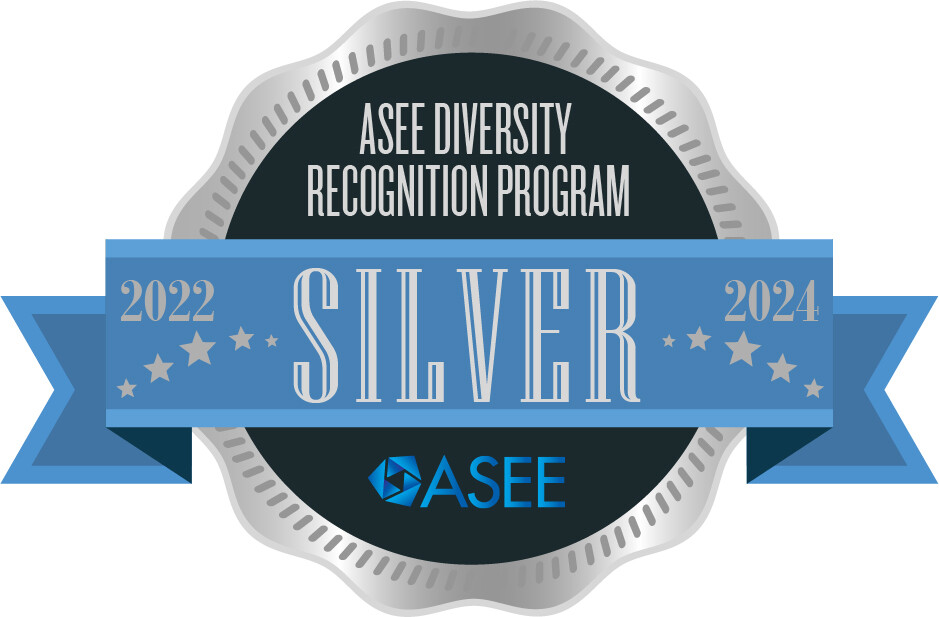
The University of Nebraska–Lincoln College of Engineering is among the first group of institutions across the United States to achieve Silver Award status within the American Society for Engineering Education Diversity Recognition Program.

In 2019, Nebraska’s College of Engineering was in the first cohort of colleges to earn bronze-level recognition through the ASEE Diversity Recognition Program. Requirements for Bronze-level designation include creating a DEI plan that adheres to timelines and measurable outcomes, the Dean signing the ASEE Deans Diversity Pledge, and a review of metrics and goals regarding demographics.
The ADRP website states that institutions recognized at the silver level are “among the nation’s leaders in inclusive excellence, and (have) demonstrated significant impact over and above those at the bronze level.”
“In the College of Engineering, we are committed to providing an inclusive and diverse community as we work to fulfill our mission to meet the workforce demands and drive economic development in the state of Nebraska,” said Lance C. Pérez, dean and Omar H. Heins Professor of Electrical and Computer Engineering. “We are fortunate to have faculty, students and staff who understand the need to support diversity in people and ideas as we strive to solve problems of local and global importance.”
Pérez added, “We will continue to enhance and grow our diversity and inclusion efforts through our deep commitment to engineering, computing and construction education, research and engagement.”
Since earning the Bronze Award four years ago, the college has made significant progress toward its goals of increasing diversity and enhancing inclusion among faculty and the student body. This includes:
Increases in the percentages of women faculty, women undergraduates, and undergraduates from racial and ethnic backgrounds who are underrepresented in science and engineering
Improved diversity in leadership positions, with women leading three of the college’s six academic units
Student recruitment initiatives, including the Peter Kiewit Foundation Engineering Academy and the Kiewit Scholars Program, whose combined scholars are 70 percent women and 44 percent UREG.
For more information about the College of Engineering’s diversity and inclusion efforts, visit the Inclusive Excellence website.







